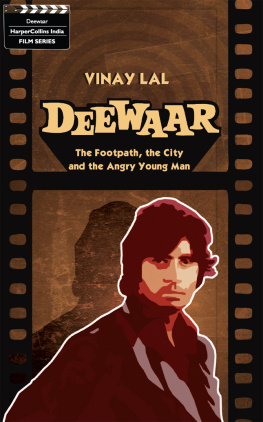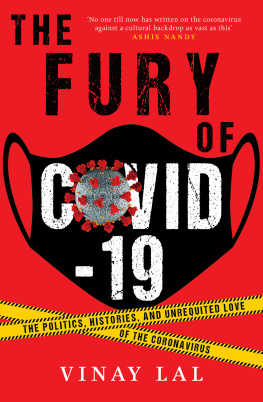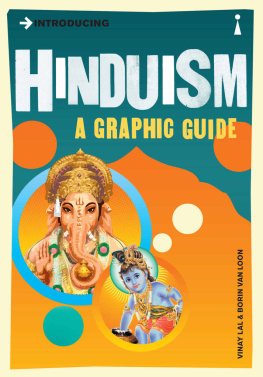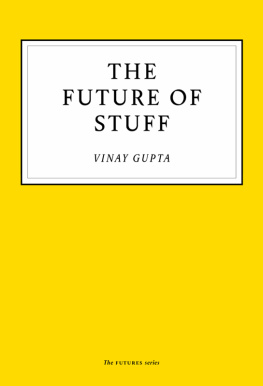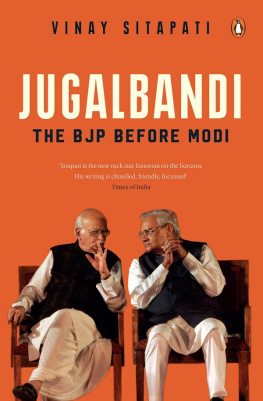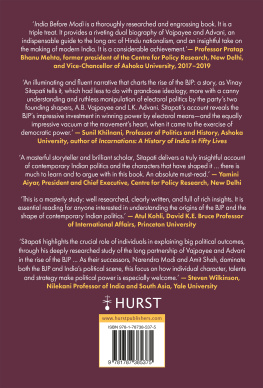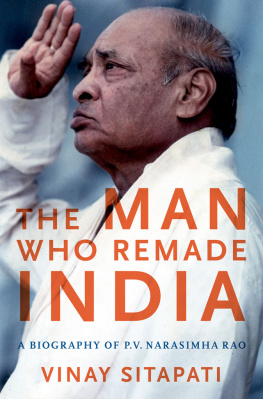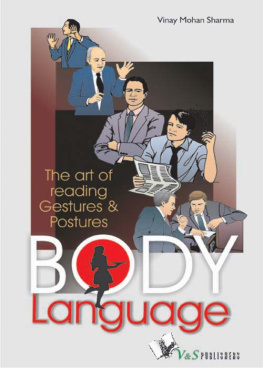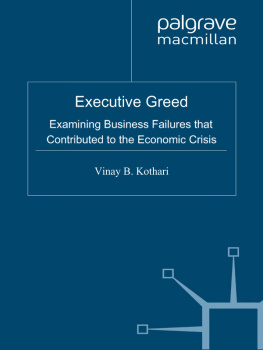Vinay Lal - Deewar
Here you can read online Vinay Lal - Deewar full text of the book (entire story) in english for free. Download pdf and epub, get meaning, cover and reviews about this ebook. year: 2012, publisher: HarperCollins Publishers India, genre: Non-fiction. Description of the work, (preface) as well as reviews are available. Best literature library LitArk.com created for fans of good reading and offers a wide selection of genres:
Romance novel
Science fiction
Adventure
Detective
Science
History
Home and family
Prose
Art
Politics
Computer
Non-fiction
Religion
Business
Children
Humor
Choose a favorite category and find really read worthwhile books. Enjoy immersion in the world of imagination, feel the emotions of the characters or learn something new for yourself, make an fascinating discovery.
- Book:Deewar
- Author:
- Publisher:HarperCollins Publishers India
- Genre:
- Year:2012
- Rating:5 / 5
- Favourites:Add to favourites
- Your mark:
- 100
- 1
- 2
- 3
- 4
- 5
Deewar: summary, description and annotation
We offer to read an annotation, description, summary or preface (depends on what the author of the book "Deewar" wrote himself). If you haven't found the necessary information about the book — write in the comments, we will try to find it.
Deewar — read online for free the complete book (whole text) full work
Below is the text of the book, divided by pages. System saving the place of the last page read, allows you to conveniently read the book "Deewar" online for free, without having to search again every time where you left off. Put a bookmark, and you can go to the page where you finished reading at any time.
Font size:
Interval:
Bookmark:

Deewaar
The Footpath, the City and
the Angry Young Man
Vinay Lal

To the memory of Neela Karnik and
Teshome Gabriel,
lovers of cinema and extraordinary exemplars
of friendship
Table of Contents
The Many Lives
of Deewaar
The thirty-five years that have elapsed since Yash Chopra's Deewaar (The Wall) hit the screens have done nothing to diminish the reputation of the film as one of the most iconic works of mainstream Hindi cinema. Deewaar was the product of tumultuous times, though it must be said that to every generation its own period seems uniquely troubled, fraught with crises. To Indians, the 1970s were a time free of what these days is called terrorism; nor could one have imagined something like 200,000 farmers, their lives weighed down by debt, committing suicide. Recalling my life as a teenager at that time, I seem to remember, among other things, lines for milk, shortages of essential food items, and interminably long delays in procuring telephone connections. Those were the days when it took ten years or more to get a landline number indeed, the word landline did not exist in our vocabulary, as there were no mobiles by way of distinction.
It may be safely averred that the first half of the 1970s, as a later chapter in this book will detail at greater length, was a period of great uncertainty for India's citizens. In late 1971, India had achieved a decisive military triumph over Pakistan, even if this achievement is recalled in Pakistan as a deliberate dismemberment of the country; and the party once led by Mohandas Gandhi seemed positioned to consolidate its achievements and reputation under the leadership of Prime Minister Indira Gandhi. A few years later, India would even seek entry into the exalted, or should we say debased, club of nuclear powers with a test, quaintly described as a peaceful nuclear explosion, at Pokhran. However, these signs of prowess only obfuscated a more profound sense of unease that, close to three decades after the attainment of independence, the dream had soured. In January 1975, when Deewaar was released, unrest was widespread: economic productivity had declined precipitously, cities were crippled by strikes and protests, and political unrest would underscore the fragile nature of the Indian state.
The common man, a character created by the cartoonist R. K. Laxman, was wont to look upon the political landscape with a wry sense of humour, but to the average Indian the prospects for economic advancement must have appeared bleak. The mere notion that one might lead a life of simple but quiet dignity would have struck many as a form of indulgence. Hunger and malnutrition were rampant; unemployment remained the bane of the young. What to say of rural India, even in the cities, as I have already suggested, shortages of milk, grains, pulses, and other necessities of everyday life were widespread. Great had been the slogans about the eradication of poverty, the creation of a new India that Nehru imagined would buzz with the beautiful sound of machinery, employing millions of Indians and carrying the country to the threshold of modernity, and the dawn of freedom that had long been suppressed under the despotism of a colonial regime. Yet the sense of loss and betrayal was prefigured in the very act of independence, accompanied by vivisection and numbing bloodshed: in the memorable if oft-quoted lines of Faiz: Yeh daag daag ujala, yeh shab gazida sahar / Vo intezar tha jiska, yeh vo sahar toh nahin (This stained daybreak, this night-smudged dawn /This is not that dawn which we awaited).
The time was ripe for the birth of what would become known as the angry young man. In recent polls, India's young, at least in middle-class circles, have been described as among those who are most optimistic about the future, even prepared to believe that India is now poised to occupy its rightful place as a leading power in Asia and the world beyond. One might expect that Deewaar has consequently aged, but it is inescapably clear that neither changing cultural and cinematic fashions nor the substantially altered political landscape have reduced its appeal an iota. It has even found new audiences, its reach suggested by the unusual manner in which Deewaar is referenced in contemporary cinema. In the comedy, Loins of Punjab (2007), which has a near cult following, a young Jewish man, Josh Cohen, obsessed with Bollywood, and an elegant non-resident Indian, Mrs Kapoor (Shabana Azmi), are among those who gather at a motel in New Jersey as contestants vying for the American Desi Idol. When Mrs Kapoor is congratulated by a young reporter on her melodious voice, she turns to her guru and says, As Amitabh Bachchan said in that famous movie, Mere paas ma hai . Well, mere paas guruji hai , I have my teacher. Thereupon, Josh corrects Mrs Kapoor, Amitabh didn't say that. In Deewaar , Amitabh didn't say that. With clenched fist and a determined look on his face, Josh adds: He said, mere paas bungalow hai, gadi hai, tumhare paas kya hai , and then Shashi Kapoor said, Mere paas ma hai . How can you, the young reporter asks Josh, know so much about Hindi films? I'm a huge fan of Amitabh, confesses Josh.
Appreciation of the film has come from other unexpected quarters: Danny Boyle, describing Deewaar as absolutely key to Indian cinema, is known to have studied the film before making Slumdog Millionaire .
Amitabh Bachchan, given a fresh breath of life after Zanjeer (1973) rescued him from a career that seemed to be spiralling downward, was perhaps already on the way to stardom before Deewaar was launched; nevertheless, Deewaar was unquestionably critical in installing him as the unrivalled hero of the commercial Hindi film. Film aficionados will likely debate whether Amar Akbar Anthony (1977) was required to complete Amitabh's persona, but I am inclined to agree with a recent study of Amitabh's films which claims that Deewaar is the basic text of Amitabh Bachchan, and that his later films should be viewed as entering into a dialogical engagement with the hero image generated by Deewaar . Similarly, though the scriptwriter duo of Salim Javed, the shorthand for Salim Khan and Javed Akhtar, had signalled its momentous arrival on the Bombay film world with Zanjeer , the crisp dialogues of Deewaar have left a staggering imprint on Hindi cinema and popular memory. The film's signature line is echoed in every nook and cranny of Indian culture, and it is touching that, in accepting an Oscar for his music for Slumdog Millionaire , A.R. Rahman rendered the film tribute unlike any, I suspect, ever heard at an Oscar ceremony: Before coming, I was excited and terrified. The last time I felt like that was during my marriage. There's a dialogue from a Hindi film called Mere paas ma hai , which means I have nothing but I have a mother, so mother's here, her blessings are there with me. I am grateful for her to have come all the way.
It may be, then, that the success of Deewaar owed much to its harnessing of sentiments that were widespread but not yet fully articulated in cinematic language, as well as to the synergy among members of its cast and production team. I have already spoken of the arrival of Salim Javed in tinsel town, and similarly of the revival of Amitabh Bachchan's career with the projection of his image, with which he is pre-eminently associated to this day, as the angry young man. The touch of a consummate director such as Yash Chopra, whose reputation was well established with films such as Dhool Ka Phool (1959), Dharmaputra (1961), and Waqt (1965), was perhaps all that was wanting in taking Bachchan to unrivalled heights. But is it too far removed to imagine Deewaar as a film that could well have been made by Prakash Mehra or Manmohan Desai? Is there something that allows us to hook Deewaar to Yash Chopra's world view, or does the enduring appeal of Deewaar arise from its treatment of the underlying themes of Indian society in transition and its deep structuring in what might be described as the mythos of Indian civilization?
Next pageFont size:
Interval:
Bookmark:
Similar books «Deewar»
Look at similar books to Deewar. We have selected literature similar in name and meaning in the hope of providing readers with more options to find new, interesting, not yet read works.
Discussion, reviews of the book Deewar and just readers' own opinions. Leave your comments, write what you think about the work, its meaning or the main characters. Specify what exactly you liked and what you didn't like, and why you think so.

